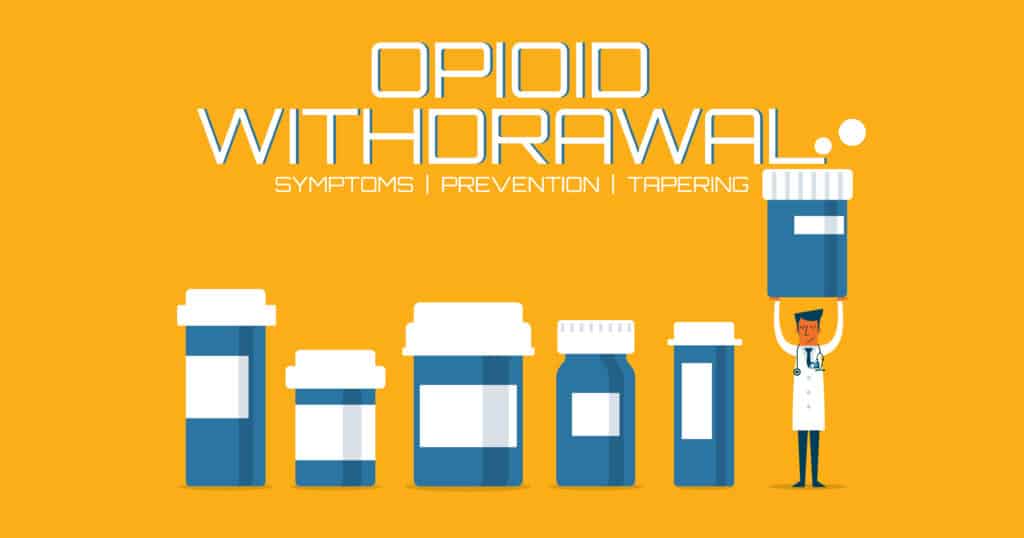
What is an Opioid?
An opioid is a substance that prevents pain messages from being sent between the brain and the rest of the body. This can provide pain relief while also slowing your heart rate and breathing.
Most opioids, like morphine and codeine, can be used to treat pain, but others, like methadone, can also be used to treat addiction and manage withdrawal symptoms.
Opioids are used to treat moderately severe or severe pain in the short term, such as pain from surgery or an injury. They also aid in the management of pain caused by cancer and other terminal diseases.
Opioids are classified into two types: those that occur naturally and are derived from the opium poppy (such as codeine, morphine, and heroin) and those that are synthesized (such as pethidine and fentanyl).
Why should I stop taking, or reduce, my opioid medicine?
Prescription pain relievers, such as opioids, are necessary for some people, but they are dangerous and should be used with caution. Opioids can cause addiction, life-threatening breathing problems, and even increased pain sensitivity.
Tolerance to opioids can develop, which means that you may require more opioids to achieve the same effect. However, as the dosage increases, so does the risk of harmful side effects.
Approximately four out of every five people with chronic, non-cancer pain who use opioids long-term will experience at least one harmful side effect.
It is critical to review your medications with your doctor on a regular basis and to consider tapering your opioids: gradually reducing the dosage while under medical supervision.
What are opioid withdrawal symptoms?
Opioid withdrawal symptoms are side effects that can occur if you abruptly discontinue or reduce the dosage of an opioid medication. They can also occur if you take another medication that prevents the opioid from working properly.
Opioid withdrawal symptoms are unpleasant and can make you feel ill, but they are unlikely to be dangerous if withdrawal is managed slowly and carefully under medical supervision. You should not stop taking opioids without first consulting your doctor.
Withdrawal symptoms for all opioids are similar and can include:
- sneezing, watery eyes, and a runny nose
- yawning and sleep disruption
- Sweating, goosebumps, and hot and cold flushes
- feeling tense or irritable
- opioid compulsions
- nausea, vomiting, diarrhea, and appetite loss
- tremor (shakenness)
During opioid withdrawal, you may also experience joint, bone, or muscle pain, as well as headaches.
Who is most likely to experience opioid withdrawal symptoms?
Even if you take an opioid medication exactly as prescribed, you can become addicted to it and experience withdrawal symptoms if the dosage is abruptly reduced. Withdrawal symptoms can occur after just two weeks of taking an opioid on a regular basis.
However, there are some predictors of opioid withdrawal symptoms, such as if:
- The dosage is excessive.
- You have been on opioids for more than six months.
Opioid withdrawal symptoms begin shortly after your last dose, but the exact timing depends on the opioid and how you take it. Withdrawal symptoms can last for varying lengths of time, depending on the type of opioid, how it is taken, and how long it has been used.
For example, if you regularly use fast-acting opioids (such as oxycodone or morphine), you will likely experience withdrawal symptoms — but they should be brief. If you take a slow-release form of the same medication for an extended period of time, you are more likely to experience withdrawal symptoms. In this case, if you do get withdrawal symptoms, they will probably last longer.
You are unlikely to experience withdrawal symptoms if you have been taking an opioid medication intermittently for a short period of time.
Fear of withdrawal should not prevent you from discontinuing or reducing your opioid use. In order to reduce the likelihood of experiencing difficult withdrawal symptoms, consult your doctor about gradually reducing the dosage of your opioid medication.
How do you prevent opioid withdrawal symptoms?
Always discontinue or reduce opioid medications under the supervision of your doctor. There are ways to reduce withdrawal symptoms and make you feel more at ease. Some people are able to avoid withdrawal symptoms entirely by gradually reducing their dosage.
This is known as tapering. Your doctor will work with you to develop a day-by-day or week-by-week dosage reduction plan.
This plan will be determined by how urgent you need to stop taking opioids and how long you have been taking opioid medications. Other medications may be recommended by your doctor to help you manage any opioid withdrawal symptoms.
How do you treat opioid withdrawal symptoms?
Tapering opioid medications under medical supervision is the best way to avoid unpleasant withdrawal symptoms. However, if you do experience symptoms, keep in mind that they are usually transient and not dangerous. Your doctor can help you manage them.
Non-drug strategies can be used to help you manage withdrawal symptoms. Drinking plenty of water will help you avoid dehydration, which can occur during opioid withdrawal and cause you to feel ill. Mind-body therapies such as yoga, relaxation, and meditation are also effective strategies for many people experiencing opioid withdrawal.
It is critical to rely on your support network; and inform your family and friends that you may require additional assistance while going through opioid withdrawal.
First, consult your doctor about any treatments or strategies for dealing with withdrawal symptoms. It is critical to consider the required level of care, insurance coverage, and commitment when selecting the best detox program. Silicon Valley Recovery is the most comprehensive opioid detox center, offering assistance at every stage of your recovery.
FAQs
What are four tips that can help a person cope with withdrawal symptoms?
Stay hydrated and maintain a balanced diet to support your body. Engage in regular physical activity to boost mood and reduce stress. Establish a strong support network of friends, family, or support groups. Practice relaxation techniques such as deep breathing, meditation, or yoga to manage stress and anxiety.
What is used for the treatment for withdrawal symptoms in opiate users?
Medications such as methadone, buprenorphine, and naltrexone are commonly used to treat withdrawal symptoms in opiate users. These medications help reduce cravings and withdrawal symptoms, making it easier for individuals to stop using opiates. Additionally, supportive care, counseling, and therapy are often recommended to address the psychological aspects of addiction and support long-term recovery.
What are the new medications for opiate withdrawal?
The new medications for opiate withdrawal include lofexidine, a non-opioid medication that helps reduce withdrawal symptoms. Buprenorphine, a partial opioid agonist, is also used to ease withdrawal and cravings. These medications are part of a comprehensive treatment plan that may include therapy and support groups to effectively manage withdrawal and recovery.
What is the timeline for opioid withdrawal?
Opioid withdrawal symptoms typically begin within 6-12 hours for short-acting opioids and 30 hours for long-acting ones. The acute phase peaks around 72 hours and lasts about a week. Post-acute withdrawal symptoms (PAWS) can persist for weeks or months, including mood swings, anxiety, and sleep disturbances. The timeline varies based on factors like the type of opioid, duration of use, and individual health.
What is used to block withdrawal symptoms?
Medications such as methadone, buprenorphine, and naltrexone are commonly used to block withdrawal symptoms. These medications help manage cravings and reduce the discomfort associated with withdrawal from substances like opioids. They work by interacting with the same receptors in the brain that the addictive substance targets, thereby easing the transition and supporting recovery efforts.
How long does it take for a withdrawal to clear?
Withdrawal processing times can vary depending on the method used. Bank transfers typically take 3-5 business days, while credit or debit card withdrawals may take 2-4 business days. E-wallet withdrawals are usually processed within 24 hours. Please note that processing times can be affected by weekends, holidays, and the policies of your financial institution.









